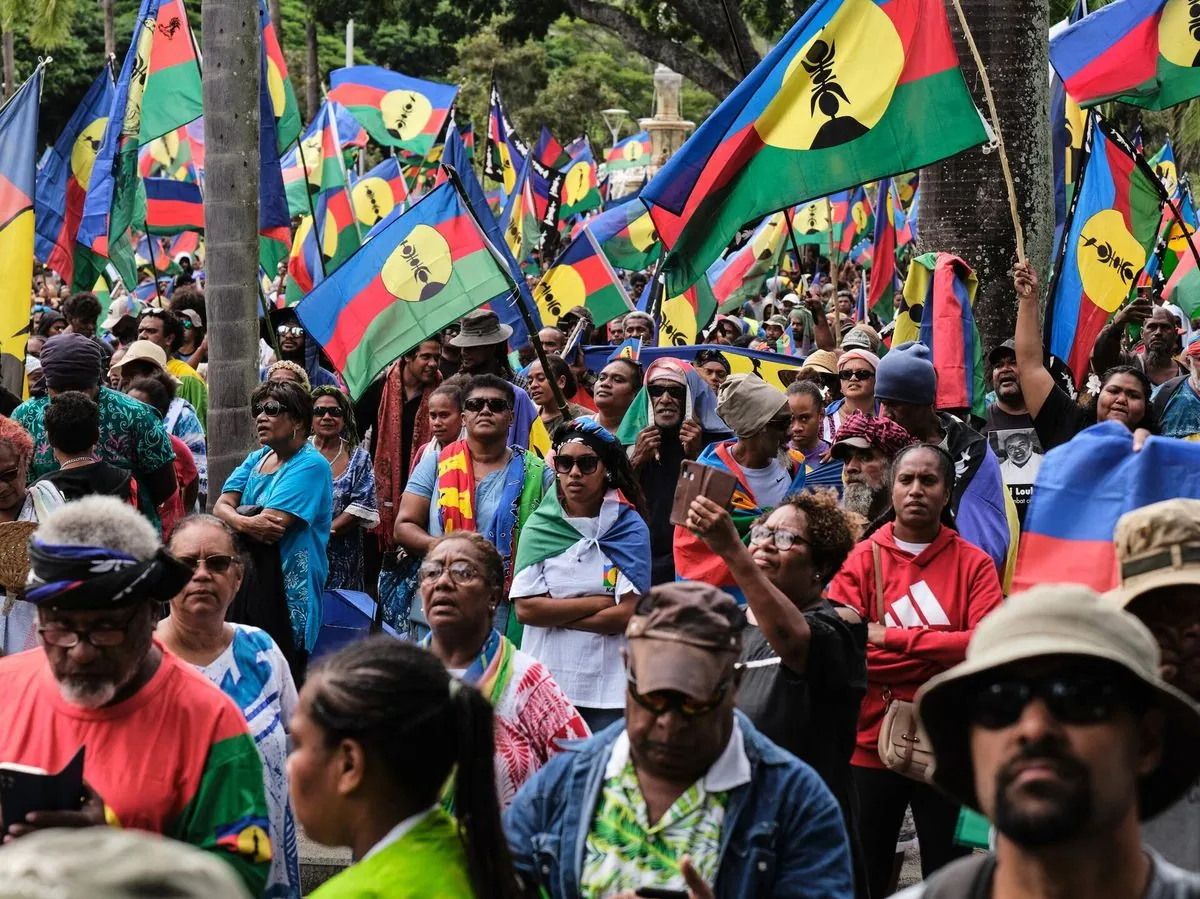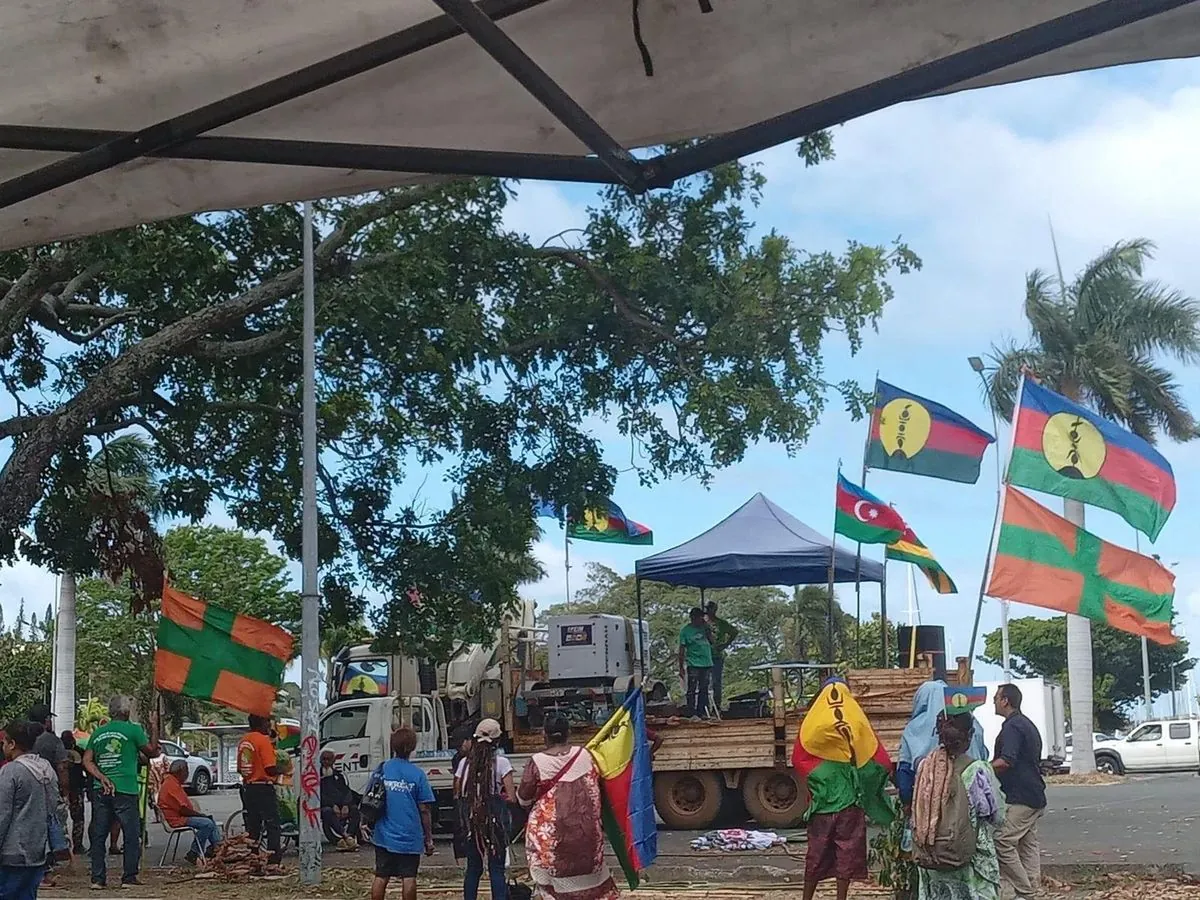Anti-Colonial Rhetoric: A Tool for Illiberal Regimes' Geopolitical Gains
Authoritarian states exploit anti-colonial sentiments to advance their agendas, challenging Western influence. This resurgence of anti-colonialism is reshaping global politics and requires a nuanced Western response.

In May 2024, New Caledonia witnessed a surge of pro-independence demonstrations, marking a significant moment in the territory's complex relationship with France, which has governed it since 1853. The protests, characterized by the display of Indigenous Kanak and pro-independence flags, also featured an unexpected symbol: the flag of Azerbaijan.
This curious inclusion was not a mistake but a deliberate show of support, stemming from Azerbaijan's strategic cultivation of the New Caledonian independence movement since March 2023. Baku's involvement, ostensibly rooted in anti-colonial solidarity, was in reality a calculated move to retaliate against France's diplomatic support for Armenia following Azerbaijan's 2020 incursion into Nagorno-Karabakh.

The New Caledonian incident exemplifies a broader trend: the resurgence of anti-colonialism as a potent ideological force. Unlike its predecessors in the 1960s and 1970s, this new wave is largely driven by opportunistic illiberal regimes exploiting anti-colonial rhetoric to further their own geopolitical ambitions.
Russia, in particular, has positioned itself as a leading voice of the global south, describing itself as the vanguard of the "global majority" and championing a "more just multipolar world." This stance is evident in Vladimir Putin's June 2024 visit to Pyongyang, where he accused the United States of imposing a "global neo-colonial dictatorship."
Moscow's primary stage for projecting its anti-colonial image is Africa, particularly the Francophone Sahel region. The Kremlin has capitalized on the legacy of Soviet support for African independence movements during the Cold War, which has generated lingering sympathy on the continent. Russian mercenary groups have replaced French security services in several West African countries, ostensibly supporting anti-French political movements.
However, this shift raises questions about the true nature of sovereignty in these nations. Military juntas in West Africa often exploit anti-French sentiments to obscure their reliance on Russian support for regime security, effectively trading one external influence for another.
"The former colonizers are trying to keep the people of African countries in check. In order to keep them in check, the former colonizers are filling these countries with terrorists and various bandit formations. Thus creating a colossal security crisis."
Russia's anti-colonial crusade belies its efforts to advance its own political and economic interests. Moscow's actions in Africa stem from a desire to undercut Western influence, secure diplomatic support in multilateral forums, and reinstate its reputation as a global superpower. Additionally, Russia may seek access to Africa's vast natural resources and exploit illicit networks to circumvent international sanctions.
The resonance of anti-colonial rhetoric in the global south is rooted in long-standing economic disparities and painful histories of Western interventionism. The current humanitarian crisis in Gaza has further heightened perceptions of Western hypocrisy among some commentators in developing nations.
To address these challenges, Western governments must acknowledge the shortcomings of the current international liberal order rather than attempting to downplay its inequities. Initiatives like Germany's 2021 joint declaration with Namibia, which acknowledged the 1904-1908 genocide of the Herero and Nama peoples and committed $1.2 billion to aid projects, offer a model for constructive engagement.
In the near term, the United States and its allies should actively counter propaganda from authoritarian regimes that portrays them as free from interventionist pasts. Exposing disinformation campaigns and labeling state-linked social media accounts could help alert the public to bad-faith actors exploiting genuine anti-colonial grievances.
As the global landscape continues to evolve, it is crucial for Western nations to address their colonial legacies while simultaneously challenging the opportunistic use of anti-colonial rhetoric by illiberal regimes. This balanced approach is essential for maintaining influence and fostering genuine partnerships in the global south.


































